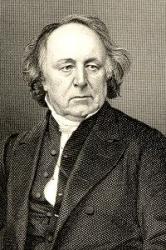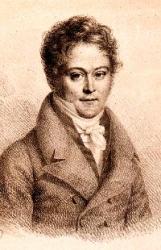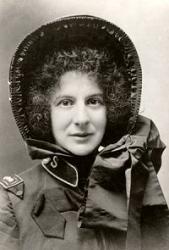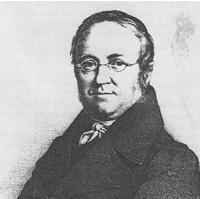Planning worship?
Check out our sister site, ZeteoSearch.org,
for 20+ additional resources related to your search.
- |
User Links
Person Results
Samuel Webbe
1770 - 1843 Arranger of "CORINTH (DULCE CARMEN)" in The Hymnal of The Evangelical United Brethren Church Samuel Webbe, Jr. (1770-1843), adapted the tune RICHMOND. He was organist at Paradise Street Unitarian Church, Liverpool (1798). Later he succeeded his father as organist at the Spanish Ambassador’s Chapel, London (1817), and then St. Nicholas’ Church and St. Patrick’s Roman Catholic Chapel, Liverpool.
--The Presbyterian Hymnal Companion, 1993
Samuel Webbe
Thomas Binney

1798 - 1874 Person Name: Thomas Binney, 1798-1874 Adapter of "MANNHEIM" in Common Praise (1998) Binney, Thomas, D.D., b. at Newcastle-on-Tyne, in 1798, and educated at Wymondley College, Hertfordshire. Entering the ministry, he was successively pastor of a congregation at Bedford, an Independent Chapel at Newport, Isle of Wight, and of the King's Weigh House Chapel, London, 1829. The University of Aberdeen conferred upon him the LL.D. degree. He died Feb. 23, 1874. His works, exceeding 50 in number, include Life of the Rev. Stephen Morell, 1826; Money, 1864; St. Paul, his Life and Ministry, &c. He wrote a few hymns, including "Eternal Light! Eternal Light,” and "Holy Father, Whom we praise.” (Close of Service.)
--John Julian, Dictionary of Hymnology (1907)
Thomas Binney
William Litton Viner
1790 - 1867 Person Name: William Letton Viner, (1790-1867) Composer of "GUIDE ME" in The Hymnal and Order of Service Born 1790 in Bath, died 1867 in Westfield, MA. Organist and composer.
William Litton Viner
John Randall
1717 - 1799 Person Name: J. Randall, 1715-99 Composer of "LEWIS" in Songs of Praise
John Randall
H. P. Danks

1834 - 1903 Composer of "[Lead us, heav'nly Father, lead us]" in The Gospel Hymnal
H. P. Danks
Pierre Marie François de Sales Baillot

1771 - 1842 Person Name: Pierre-Marie-Francois de Sales Baillot (1771-1842) Composer of "OLIPHANT" in Hymns of the Ages Pierre Marie François De Sales, born at Passy, France, Oct. 1, 1771, died in Paris, Sept. 15 1842. Instrumental composer, critic, and last great representative of the classical school of violin playing in Paris. Professor of the violin at the Conservatoire. His first master on the violin was an Italian named Polidori, but his real musical education began in 1780 under Sainte-Marie in Paris, and was continued in 1783 under Pollani, in Rome, where he was sent by M. de Boucheport; his playing was influenced also by Viotti, whom he heard in his tenth year. Baillot firs appeared in public in 1791, Viotti procuring him a place in the Théâtre Feydeau, which he soon resigned for an appointment in the Ministère des Finances using his musical talent merely as a recreation, In 1795, after studying compositions of Corelli, Tartini, Geminiani, Locatelli, Bach, and Handel he determined to become a professional musician, and made a successful debut in a concrto by Viotti, which secured his reputation and gained him a professorship of the violin in the newly opened Conservatoire, which he held till his death. He studied also harmony under Catel, and counterpoint with Reicha and Cherubini. Member of Napoleon's private band in 1802. He made a professional tour with the violoncello player Lamare in Russian in 1805-08, but the war brought him home; he gave concerts in the South of France, and started chamber music concerts in Paris in 1815, which gained him great reputation as a quartet player. In 1815-16 he made a second professional tour in Holland, Belgium, and England, becoming a member of the English Philharmonic Society, at one of whose concerts he played on Feb 25, 1816. Director of the band at the Paris Opéra in 1821-31; director of the Concerts spirtuels given at the Opéra, 1822, 1823, 1824; of the Royal Band from 1825; his last tour was made through Switzerland and part of Italy in 1833. Baillot's quartet playing is highly praised by Mednelssohn and Hiller. He had celebrated pupils. He assisted Rode and Kreutzer in compiling a work for the violoncello, and the Méthode de Violon, adopted by the Conservatoire (1803); with the exception of the Art du Violon, which is considered by Fétis the best elementary work of the kind (1834), his works are almost forgotten. His music is difficult. Among his published compositions are: 15 trios for two violins and bass; 6 duets for two violins; 12 études for violins; 9 concertos; Symphonie concertante for two violins, with orchestral accompaniment; 30 airs variés; 3 string quartets; Sonata for pianoforte and violin; 24 préludes in all keys, and several smaller compositions for the violin.
Cyclopedia of Music and Musicians by John Denison Camplin, Jr. and William Foster Apthorp (Charles Scribner’s Sons, 1888)
https://archive.org/details/cyclopediaofmusi01cham/mode/2up
Pierre Marie François de Sales Baillot
Evangeline Booth

1865 - 1950 Person Name: E. Booth Composer of "MOSELY" in The Message in Song
Evangeline Booth
S. M. Bixby
1833 - 1912 Composer of "CARLISLE" in Gloria Deo Samuel M. Bixby was born on May 27, 1833 in Haverhill, New Hampshire. His company, S. M. Bixby & Company, manufactured shoe blackings and shoe dressings, but music was his passion. He was also a Sunday school superintendent and choir leader. He died on March 11, 1912 in Fordham, New York. His works include:
Church and Home Hymnal, circa 1893
Evangel Songs, circa 1894
Gloria Deo: A Collection of Hymns and Tunes for Public Worship in All Departments of the Church (New York: Funk & Wagnalls Company, 1901)
NN, Hymnary. Source: http://www.hymntime.com/tch/bio/b/i/x/bixby_sm.htm
S. M. Bixby
Johann Georg Frech

1790 - 1864 Person Name: J. G. Frech, 1790-1864 Composer of "SÜSS UND RUHIG" in The Evangelical Hymnal Johann Georg Frech (* January 17 1790 in Kaltental, † August 23 1864 in Esslingen am Neckar ) was a German music director, composer and organist.
Naughty was the son of a watchmaker and organ builder. He visited here until his 13th Age of the school, then high school in Stuttgart and took lessons in music.
In 1806 he was teaching assistant in Degerloch while still in Stuttgart, studied music. In 1811 he went as a teaching assistant after Esslingen and in 1812 a music teacher at the newly established Esslinger teacher seminar. In 1820 he received the office of a municipal director of music and organist at the main church in Esslingen, where he remained until his retirement in 1860. His successor was Christian Fink.
Naughty took a significant role in the Württemberg church singing together with Konrad Kocher and Friedrich Silcherstraße one. Together with the aforementioned He created "The Württemberg Choral Book" of 1828 and was co-editor of "Württemberg Choral Book" of 1844.
Frech has composed six symphonies, many choral works, including 22 chorales for Württembergischen chorale books, 67 cantatas, an opera, the oratorio "Abraham on Moriah" and some organ works.
In the district of Stuttgart Kaltental a street was named after naughty.
--de.wikipedia.org/wiki/
Johann Georg Frech
Richard Lloyd
1933 - 2021 Person Name: Richard Lloyd, b. 1933 Composer of "RED WHARF BAY" in Complete Anglican Hymns Old and New
Richard Lloyd


 My Starred Hymns
My Starred Hymns

